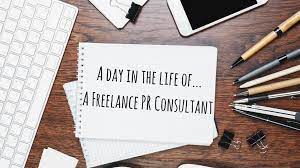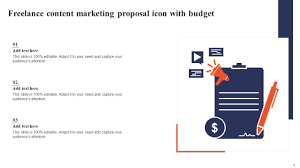Unleashing the Power of a Freelance PR Consultant: Embracing Flexibility and Expertise
The Rise of the Freelance PR Consultant: Embracing Flexibility and Expertise
In today’s fast-paced business landscape, organisations are increasingly turning to freelance PR consultants to meet their communication needs. The traditional model of hiring in-house public relations teams is being challenged by a growing trend towards flexible and specialised expertise. Freelance PR consultants offer a range of benefits that can help businesses navigate the ever-changing world of public relations.
One of the key advantages of hiring a freelance PR consultant is flexibility. Unlike full-time employees, freelancers can be engaged on a project-by-project basis, allowing businesses to scale their communication efforts according to their specific needs. Whether it’s launching a new product, managing a crisis, or executing a targeted media campaign, freelance PR consultants offer the agility and adaptability required in today’s dynamic marketplace.
Furthermore, freelance PR consultants often bring a wealth of industry experience and knowledge to the table. Many have worked with diverse clients across various sectors, giving them valuable insights into different markets and audiences. This broad perspective allows them to develop effective strategies that resonate with target audiences and deliver measurable results.
In addition to their expertise, freelance PR consultants are often highly skilled in relationship building. They have established networks within the industry, including journalists, influencers, and other key stakeholders. These connections can be invaluable when it comes to securing media coverage, building partnerships, and enhancing brand reputation.
Another advantage of working with freelance PR consultants is cost-effectiveness. Hiring an in-house team can be expensive when considering salaries, benefits, office space, and equipment costs. On the other hand, freelancers typically work remotely and charge on a project basis or hourly rate. This allows businesses to access top-tier talent without the overheads associated with permanent employees.
Freelance PR consultants also bring fresh perspectives and innovative ideas to the table. As independent professionals working across multiple clients and industries, they are constantly exposed to new trends and best practices. This exposure enables them to think creatively and develop unique strategies that set businesses apart from their competitors.
However, it’s important to note that hiring a freelance PR consultant requires careful consideration. Businesses should evaluate the consultant’s portfolio, testimonials, and references to ensure they have the necessary skills and experience. Effective communication and clear expectations are also crucial for a successful collaboration.
In conclusion, the rise of freelance PR consultants offers businesses an opportunity to embrace flexibility, expertise, and cost-effectiveness in their communication efforts. These professionals bring a wealth of industry experience, strategic thinking, and valuable connections that can help businesses achieve their PR objectives. By leveraging the skills of freelance PR consultants, organisations can navigate the ever-changing landscape of public relations with confidence and achieve their desired outcomes.
Frequently Asked Questions About Hiring a Freelance PR Consultant
- What does a freelance PR consultant do?
- How much does a freelance PR consultant charge?
- How do I find a reliable freelance PR consultant?
- Can a freelance PR consultant work remotely?
- How long does it take to see results when working with a freelance PR consultant?
- Do I need to sign a contract when hiring a freelance PR consultant?
What does a freelance PR consultant do?
A freelance PR consultant is a professional who provides public relations services on a project-by-project basis, typically working independently or as part of a small team. Their primary role is to help businesses and individuals manage their public image, build brand awareness, and effectively communicate with their target audience.
Here are some key responsibilities and tasks that a freelance PR consultant may undertake:
- Strategic Planning: Freelance PR consultants work closely with clients to develop comprehensive communication strategies that align with their goals and objectives. They analyze the target audience, research the industry landscape, and identify key messages to shape the client’s public image.
- Media Relations: Building strong relationships with journalists, bloggers, influencers, and other media professionals is an essential part of a freelance PR consultant’s role. They pitch story ideas, secure media coverage for clients, coordinate interviews, and handle media inquiries.
- Content Creation: Freelance PR consultants often create compelling content such as press releases, articles, blog posts, social media content, and website copy. They ensure that the messaging is consistent across different platforms and tailored to resonate with the intended audience.
- Crisis Management: When a crisis occurs that could potentially damage a client’s reputation or business operations, freelance PR consultants step in to manage the situation effectively. They develop crisis communication plans, handle media inquiries during challenging times, and guide clients through the process of reputation recovery.
- Brand Development: Freelance PR consultants assist in developing and maintaining a strong brand identity for their clients. This includes creating brand messaging guidelines, managing brand consistency across various channels, and advising on branding strategies to enhance recognition and perception.
- Event Management: Organizing events such as product launches, press conferences, trade shows or exhibitions often falls within the purview of freelance PR consultants. They plan event logistics, coordinate media attendance or coverage opportunities, and ensure that events align with overall communication strategies.
- Measurement and Evaluation: Freelance PR consultants monitor and evaluate the effectiveness of their PR campaigns. They use various tools and metrics to assess media coverage, audience engagement, and overall campaign success. These insights help them refine strategies and provide clients with measurable results.
It’s important to note that the specific tasks and responsibilities of a freelance PR consultant can vary depending on the client’s industry, goals, and project requirements. However, their overarching objective is to help clients enhance their public image, build relationships with key stakeholders, and achieve their communication objectives through effective PR practices.
How much does a freelance PR consultant charge?
The rates charged by freelance PR consultants can vary depending on several factors, including their level of experience, expertise, location, and the scope of the project or services required. It is important to note that freelance PR consultants typically charge either an hourly rate or a project-based fee.
Hourly rates for freelance PR consultants can range anywhere from £50 to £200 or more per hour. Consultants with extensive experience and a strong track record may command higher rates, while those starting out in their careers may offer more competitive pricing. The complexity and specialized nature of the project can also influence the hourly rate.
For project-based fees, freelance PR consultants will typically provide a quote based on the specific requirements outlined by the client. This can include factors such as the duration of the project, the amount of research and strategy development involved, media relations activities, content creation, crisis management support, and other related services. Project fees can vary significantly depending on these factors and can range from a few hundred pounds to several thousand pounds or more.
It is advisable for businesses to discuss their budget and requirements with potential freelance PR consultants during initial consultations to get a clear understanding of pricing structures and ensure alignment with expectations.
Ultimately, it is important for businesses to consider not only the cost but also the value that a freelance PR consultant brings to their communication efforts. Hiring a skilled professional who can deliver results and help achieve business goals is often worth investing in for long-term success.
How do I find a reliable freelance PR consultant?
Finding a reliable freelance PR consultant requires a systematic approach to ensure you hire the right professional for your specific needs. Here are some steps to help you in your search:
- Define your objectives: Before beginning your search, clearly define your PR goals and objectives. This will help you identify the specific expertise and skills you need in a freelance PR consultant.
- Seek recommendations: Ask for recommendations from colleagues, industry peers, or other professionals who have worked with freelance PR consultants in the past. Personal referrals can provide valuable insights and help you narrow down your options.
- Conduct online research: Utilize online platforms and directories that connect businesses with freelancers, such as LinkedIn, Upwork, or Freelancer. Look for freelance PR consultants who have relevant experience, positive reviews, and a strong portfolio.
- Review portfolios and case studies: Take the time to review the portfolios and case studies of potential freelance PR consultants. Look for evidence of successful campaigns, relevant industry experience, and results achieved for previous clients.
- Check references: Don’t hesitate to ask for references from previous clients or employers. Reach out to these references to gain insight into the freelancer’s work ethic, communication skills, reliability, and ability to meet deadlines.
- Conduct interviews: Once you’ve narrowed down your list of potential candidates, schedule interviews or video calls to discuss your project requirements in detail. Use this opportunity to assess their understanding of your goals and their approach to problem-solving.
- Evaluate communication skills: Effective communication is crucial in public relations. During the interview process, pay attention to how well the freelancer communicates their ideas and how they respond to questions or concerns.
- Assess industry knowledge: Gauge the freelancer’s knowledge of your industry by asking specific questions related to recent trends or challenges within your sector. A knowledgeable professional will be able to provide thoughtful insights and strategies tailored to your industry.
- Discuss pricing and terms: Clearly discuss pricing, payment terms, and project timelines with the freelance PR consultant. Ensure that both parties are aligned on expectations and that the freelancer’s rates fit within your budget.
- Sign a contract: Once you’ve selected a reliable freelance PR consultant, it is essential to have a written contract in place. The contract should outline the scope of work, deliverables, timelines, payment terms, and any other relevant details to protect both parties.
By following these steps, you can increase your chances of finding a reliable freelance PR consultant who will meet your communication needs and help you achieve your PR objectives.
Can a freelance PR consultant work remotely?
Yes, absolutely! One of the key advantages of being a freelance PR consultant is the ability to work remotely. With advancements in technology and communication tools, freelance PR consultants can effectively manage their clients’ public relations needs from anywhere in the world.
Working remotely offers several benefits for both the consultant and the client. For the consultant, it provides flexibility in terms of location and working hours. They can choose to work from home, a co-working space, or any other preferred location that suits their needs. This flexibility allows them to create a work environment that promotes productivity and work-life balance.
For clients, hiring a remote freelance PR consultant means they can access top-tier talent without being limited by geographical boundaries. They are not restricted to hiring consultants who are based in their immediate vicinity or having to provide office space and equipment. Remote collaboration tools such as video conferencing, project management software, and cloud-based document sharing make it seamless for clients to communicate and collaborate with their freelance PR consultants regardless of their physical location.
Working remotely also allows freelance PR consultants to serve clients from different industries and regions without the need for extensive travel. This enables them to gain exposure to diverse markets and audiences, further enhancing their expertise and ability to deliver effective communication strategies.
However, it’s important for freelance PR consultants working remotely to maintain clear communication channels with their clients. Regular check-ins via video calls or phone conversations ensure that expectations are aligned, progress is tracked, and any potential challenges are addressed promptly.
In summary, freelance PR consultants have the flexibility to work remotely thanks to technological advancements. This arrangement benefits both the consultant and the client by providing access to talent beyond geographical limitations while maintaining effective communication channels. Working remotely allows freelance PR consultants to deliver high-quality public relations services while enjoying the freedom and flexibility that comes with remote work.
How long does it take to see results when working with a freelance PR consultant?
The timeline for seeing results when working with a freelance PR consultant can vary depending on several factors. It’s important to understand that public relations is a long-term strategy that requires consistent effort and ongoing relationship-building. However, here are some considerations regarding the timeframe for seeing results:
- Project Scope: The nature and complexity of the project will influence the timeline for achieving results. For smaller, focused projects such as a product launch or event promotion, results may be seen within a few weeks to a couple of months. On the other hand, larger-scale initiatives like building brand reputation or thought leadership may take several months or even longer to see significant impact.
- Goals and Objectives: The specific goals and objectives set for the PR campaign will also affect the timeline. If the goal is to secure media coverage, it may take time to build relationships with journalists, pitch stories, and secure placements. Similarly, if the objective is to enhance brand reputation or increase social media engagement, it may require consistent effort over an extended period to see noticeable improvements.
- Industry and Audience Factors: The industry in which your business operates and the target audience you are trying to reach can influence how quickly you see results. Some industries have more competitive media landscapes or more challenging target audiences to engage with. Understanding these factors can help manage expectations regarding timelines.
- Proactive Communication: Regular communication between you and your freelance PR consultant is crucial for progress tracking and adjustment of strategies as needed. By maintaining open lines of communication, you can ensure that efforts are aligned with your objectives and make any necessary adjustments along the way.
- Long-Term Approach: Public relations is not typically an overnight success story but rather a continuous process that builds over time. It involves relationship-building, brand positioning, and establishing credibility in your industry. While initial results may be seen relatively quickly in terms of media coverage or social media engagement, it often takes consistent effort over an extended period to see substantial and lasting results.
It’s important to discuss timelines and expectations with your freelance PR consultant at the beginning of your collaboration. They can provide insights into realistic timeframes based on their experience and the specific project scope. Remember that building a strong PR presence is an ongoing effort, and patience, persistence, and collaboration are key to achieving successful outcomes.
Do I need to sign a contract when hiring a freelance PR consultant?
When hiring a freelance PR consultant, it is generally advisable to have a contract in place. While not legally required in all cases, a contract provides clarity and protection for both parties involved. It outlines the terms of the working relationship, sets expectations, and helps mitigate potential disputes.
Here are some key elements to consider including in a contract with a freelance PR consultant:
- Scope of Work: Clearly define the specific services to be provided by the consultant. This should include details such as campaign objectives, deliverables, timelines, and any other relevant project specifications.
- Compensation: Specify the agreed-upon payment structure, whether it’s an hourly rate, project fee, or retainer agreement. Outline any additional expenses that will be reimbursed and specify how and when payments will be made.
- Confidentiality: Include a confidentiality clause that protects sensitive information shared during the course of the engagement. This ensures that the consultant maintains confidentiality regarding any proprietary or confidential information they may come across while working on your projects.
- Intellectual Property: Clarify ownership of intellectual property rights related to any work produced by the freelance PR consultant during their engagement with your business. Specify whether you or your business retain full ownership or if there are shared rights or licensing agreements.
- Termination Clause: Define the circumstances under which either party can terminate the contract and outline any notice periods required for termination.
- Indemnification: Include provisions that protect both parties from legal claims arising from their actions or omissions during the engagement period.
- Dispute Resolution: Establish a process for resolving any potential disputes that may arise during the course of the working relationship. This could include mediation or arbitration clauses to avoid costly litigation.
It’s important to note that contracts can vary depending on specific circumstances and regional legal requirements. It is advisable to consult with legal professionals familiar with local laws and regulations when drafting or reviewing contracts.
Having a well-drafted contract in place helps ensure a clear understanding of expectations, protects both parties involved, and provides a foundation for a successful working relationship with your freelance PR consultant.





